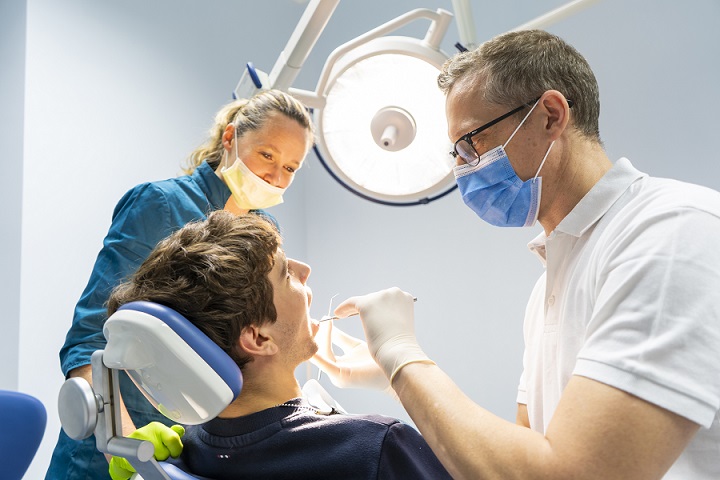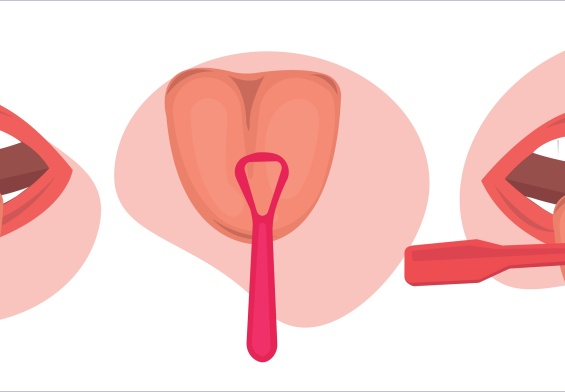One of the daily health tips every dentist is going to suggest to their patients is to brush their teeth every single day. You are more likely to have a pleasant experience if you find the right toothbrush and this will make it easier for you to stick with the regimen suggested by the dental professional. When you stand in front of the display in the store though it can be difficult to choose just the right toothbrush. Do you need a toothbrush with soft bristles, hard bristles or medium bristles? It’s important for the toothbrush to feel comfortable. Aside from comfort, are there any benefits to having a toothbrush with soft or hard bristles? Are there any features that makes one a better choice than the other? The answers to these questions might surprise you.
Advantages and Disadvantages of Hard Bristles
The primary benefit of having a toothbrush with hard bristles is that they tend to last a little longer than those with soft ones. However, most dentists recommend switching out your toothbrushes every three to four months which ensures the bristles stay in good shape. Many people have thought that medium to hard bristles were able to clean the teeth more thoroughly, but this is not necessarily true. You can brush your teeth just as effectively using a soft bristled brush and even a brush with extra soft bristles.
Hard bristles are very hard on the teeth since they tend to be abrasive on the enamel. Soft bristles will be able to clean plaque off of the surface of your teeth but it will do so in a very gentle manner. Another problem with hard bristles is that they can irritate the gums and actually push them away from teeth. Your gums are designed to provide protection for your teeth and when hard bristles push them back they expose the roots which makes the teeth more vulnerable to decay. Receding gums can also make the teeth more sensitive to the temperature of foods which can actually be painful for some people.
Advantages of Soft Bristles
Brushing thoroughly with a soft bristled brush can help protect your enamel. Soft bristles also help get rid of harmful bacteria that tries to break down the protection of your teeth. By using a soft bristled brush, you are also protecting the gums. If you use the proper technique for brushing your teeth, a soft brush should clean them just as well as a hard bristle brush. Remember that it is more important how long you brush your teeth than it is how hard you press while brushing. It only takes a small amount of gentle pressure to get rid of bacteria, debris, plaque and food particles. Heavy brushing with a soft bristled brush can cause many of the same problems as you might have if you used a hard or medium bristled brush.
One disadvantage of a soft bristled toothbrush is that they do not last as long as medium or hard bristled brushes. Soft brushes provide more protection for your teeth and clean them as effectively as other types of toothbrushes. The bristles still clean the teeth but are not as likely to cause as much damage to the teeth or gums. The ADA recommends a variety of toothbrushes with soft bristles.
Protecting Your Teeth
Even though it’s true that soft bristles may tend to fray a little quicker than hard bristles, it is no reason to avoid toothbrushes with soft bristles. It’s important to change out your toothbrush every three to four months anyway. Toothbrushes tend to accumulate bacteria when they sit. This is one good reason to trade out toothbrushes often. If the bristles fray it can also be difficult to get all of the nooks and crannies in your mouth.
Making the Switch
For someone who is used to harder bristles, it can be difficult to switch to a toothbrush with soft bristles. No matter what your preference, choose a brush that is ADA approved. It can be very discouraging to do just what the doctor ordered and brush your teeth every day just to discover that you have caused damage to the teeth and gums by brushing. By changing to a soft bristled brush, you can prevent future damage and begin to protect your teeth while brushing as frequently as it is recommended.




